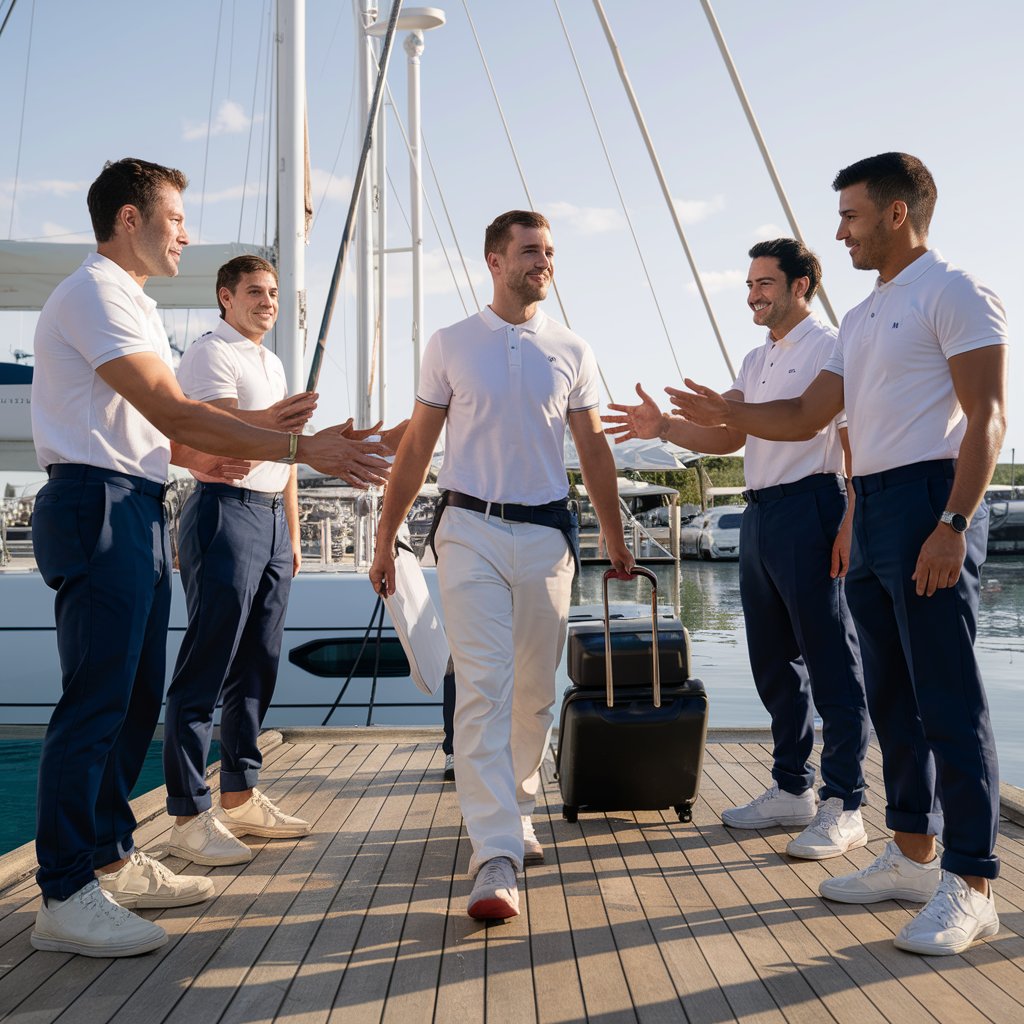
Understanding Leadership in the Yachting Industry
Effective leadership is paramount in the yachting industry, where teams must work cohesively under demanding circumstances. Yacht operations often involve high stakes, including guest satisfaction, safety, and seamless service delivery. Leadership in this context goes beyond authority; it embodies a culture of collaboration and resilience. Crew members must navigate unique challenges, such as long hours, diverse personalities, and high guest expectations, making strong leadership essential for maintaining morale and performance. Moreover, effective leaders set the tone for the entire team, fostering an environment where everyone feels valued and empowered. This understanding of leadership is crucial for ensuring that yacht staff can not only perform their roles efficiently but also thrive in their positions, which is increasingly important in such a competitive field. By focusing on leadership development, yacht crews can enhance their operational effectiveness and improve overall service quality.
The Role of Leadership Coaching
Leadership coaching plays a vital role in enhancing the capabilities of yacht staff. Unlike traditional training methods, coaching provides a personalized approach that focuses on individual strengths and areas for improvement. This method allows crew members to develop specific skills relevant to their unique roles on board. Through coaching, yacht staff can learn to handle pressure effectively, improve communication skills, and cultivate emotional intelligence. These elements are critical in fostering a cohesive team that can navigate the complexities of yachting life. The coaching process emphasizes growth and adaptability, enabling crew members to respond positively to challenges and opportunities. Ultimately, leadership coaching equips yacht staff with the tools they need to excel in their roles and contribute meaningfully to the success of the vessel.
Key Components of Effective Leadership Coaching for Yacht Staff
Several key components define effective leadership coaching tailored for yacht staff. First, emotional intelligence is crucial for leaders in high-pressure environments, enabling them to connect with their team members on a personal level. This connection fosters trust and encourages open communication, which is essential for a successful crew. Second, developing communication skills tailored to onboard scenarios can significantly reduce misunderstandings and promote teamwork. Leaders must also learn decision-making techniques that are effective under pressure, ensuring that they can make the right calls when needed most. Conflict resolution skills are equally important, as disagreements can arise from the close quarters and intense environment of a yacht. By equipping leaders with these skills, coaching programs create a more harmonious onboard culture. Together, these components not only enhance individual capabilities but also improve overall team dynamics, leading to a more productive and enjoyable work environment.
Implementing Leadership Coaching Programs for Yacht Crews
Creating a leadership coaching program for yacht staff involves several essential steps to ensure its effectiveness. First, a comprehensive assessment of the current team dynamics and individual strengths and weaknesses is necessary. This evaluation helps to identify specific coaching needs and tailor the program accordingly. Next, clear and measurable goals should be established to guide the coaching process. These goals will not only provide direction but also foster accountability among team members. Integrating coaching into existing training schedules allows for a smoother transition and encourages continuous development. Regular feedback and monitoring are crucial, enabling coaches to adapt strategies as needed and ensure that progress is being made. Finally, encouraging reflection and discussion among crew members fosters a culture of growth and camaraderie, reinforcing the skills learned during coaching sessions. This implementation strategy ultimately cultivates a more skilled and cohesive team ready to tackle the challenges of yacht operations.
The Impact of Leadership Coaching on Yacht Operations
The effects of leadership coaching on yacht operations can be profound and far-reaching. One of the most immediate benefits is the enhancement of crew morale. When staff members feel supported and empowered through effective coaching, their job satisfaction and enthusiasm for their work increase significantly. This positive atmosphere translates into better teamwork and collaboration, essential for delivering exceptional service to guests. Improved leadership skills also lead to enhanced guest experiences; when crew members are confident and capable, they can anticipate and meet guest needs more effectively. Over time, this focus on leadership can yield long-term benefits for yacht management, including increased crew retention rates and a more stable team dynamic. The investment in leadership coaching ultimately pays dividends, resulting in a more harmonious work environment and a better reputation for the yacht. As the yachting industry continues to evolve, the importance of leadership coaching cannot be overstated in maintaining high operational standards.
Choosing the Right Leadership Coach for Yacht Staff
Selecting the right leadership coach is crucial to the success of any coaching program for yacht staff. Potential coaches should possess key qualifications and traits that align with the unique needs of the yachting industry. Experience in yacht operations is essential; a coach familiar with the nuances of life onboard will be better equipped to address the specific challenges crew members face. Additionally, strong interpersonal skills and emotional intelligence are vital; a coach must be able to build rapport and trust with their clients to facilitate meaningful change. Evaluating the effectiveness of a coaching program involves assessing the progress of individuals and the overall team dynamics over time. Open communication between the coach and crew is essential, as feedback can guide ongoing development and ensure that coaching remains relevant and effective. By carefully choosing a coach who understands the unique demands of yachting, yacht staff can unlock their full potential and elevate their leadership skills.





